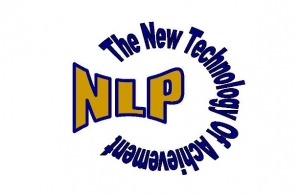How can NLP be used in Business Context?
NLP is useful in any context where people communicate and interact and some specific
applications of NLP in business are as follows:
- Ways of managing your own and others mental and physical state
- Setting outcomes so they are easier to achieve
- Making and breaking rapport to influence
- Core questioning skills to elicit accurate information
- Useful beliefs for coaching and influence
- Hypnotic language to motivate and influence
- Meta Programs for how we can motivate ourselves and others
- LAB Profile for hiring and managing people and teams
- Modelling for ongoing personal development
- Logical levels for managing change and alignment
- Disney creative strategy
- Chunking for conflict management
Most of these skills, tools and techniques and others are taught in the NLP Certification training.
Some Projects in which NLP has been used:
- Diners Club trained every manager and representative in the customer service area in NLP skills for handling customer and internal communication. The net result was a 254% increase in customer spending, and a 67% reduction in customer loss. The Customer Service Department, previously a cost center, became a revenue-producing part of the organization.
- BMW in England modeled the communication patterns of the top 1% in sales. After determining the successful behaviors of these salespeople, the skills were taught to every salesperson in the organization. Sales of a new-introduced product greatly exceeded projections.
- American Express trained twenty-four line managers from all over Asia to become transformational trainers. With no previous training experience, these employees became the heart of “American Express Quality Leadership”, an areawide initiative to encourage every employee to take personal responsibility for quality in customer service.
- Fiat modeled the leadership skills of their finest formal and informal leaders. Subsequent management training focused on the skills uncovered in the modeling process.
(Source: NLP Comprehensive)
How NLP has assissted Business Professionals:
- A manager tailors his approach to staff development and motivation to the individual thinking patterns of each staff member. In a performance review, he identifies the employee’s motivation strategy, i.e. how the employee motivates him/herself, and incorporates this naturally into the employee’s development plan.
- A team member presents a proposal in a planning meeting. He begins by gaining rapport and accord in the group. He then incorporates highly valued criteria representing each faction in the team into the design and communication of his idea. This makes the idea more accessible to each participant in the meeting, and therefore more persuasive.
- A customer service representative handles a call from an irate customer. She establishes rapport with the customer, gently leads him into a calmer state of mind, pinpoints the problem, and solves it.
- An internal consultant is part of an international project. He notices cross-cultural communication problems developing between project team members. Reading their non-verbal cues, he “translates” each group’s intentions to the other group and prevents delays in the project due to misunderstandings.
(Source: NLP Comprehensive)


I feel that is one of the such a lot vital info for me. And i’m happy studying your article. However want to commentary on some common things, The site style is great, the articles is really great :D. Good task, cheers.